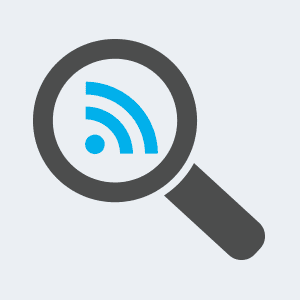HouseholdsIn Dayton (Liberty County), TX, the aggregate number of households is 28,890 |
Median IncomeHouseholds in the city of Dayton (Liberty County), TX have a median income of $48,584. |
PopulationThe total population in the city of Dayton (Liberty County), TX is 74,258 |
DSL TechnologyApproximately 56.76% of consumers in the city of Dayton (Liberty County), TX have access to DSL internet |
Fiber TechnologyApproximately 1.06% of consumers in the city of Dayton (Liberty County), TX have access to fiber-optic internet. |
Cable TechnologyApproximately 40.2% of consumers in the city of Dayton (Liberty County), TX have access to cable internet. |
Wireless TechnologyApproximately 100% of consumers in the city of Dayton (Liberty County), TX have access to mobile broadband internet. |
Average upload speedFor residents in the city of Dayton, TX, the city-wide average upload speed is 5 Mbps |
Average download speedFor residents in the city of Dayton, TX, the city-wide average download speed is 7 Mbps. |
Best Internet Service Providers in Dayton, TX


Call (858) 947-7574

Best Internet Service Providers in Dayton, TX
| Provider | User Rating | Phone Number |
|---|---|---|

|
|
(858) 947-7562 |

|
|
(858) 947-7560 |

|
|
(858) 947-7563 |

|
|
VISIT SITE |

|
|
(205) 946-1154 |

|
|
(858) 947-7547 |

|
|
(858) 947-7547 |

What are the Best Internet Providers in Dayton, TX?
Before choosing a high-quality Internet provider, it's useful to understand how the different Internet services work. Every service comes with advantages and disadvantages.
When shopping for Internet service, consumers have many options to choose from, and since companies are constantly competing for business, it has become much easier to find great deals. The download speeds offered with most services are increasing while the price is dropping. The main services that consumers can choose from are cable, DSL, satellite and fiber-optic Internet. The problem is that the list of choices can be confusing, and by offering bundles for various services, the Internet companies aren't making the decision any easier.
There are many deals available for high-speed Internet in Dayton, TX, and by comparing the different services, consumers can choose the Internet service that suits their needs. MyRatePlan provides comparison tools for consumers and helps make the decision process easier. Our tool can even find high-speed Internet options that are compatible with an existing phone or TV service. To start using the tool, a ZIP code must be entered.
MyRatePlan makes it easy to find home Internet services, but it even has a section for business Internet. With an advanced tool from MyRatePlan, consumers can check the speed of their current Internet connection on any device because the tool doesn't need Flash or Java.

Dayton, TX Cable Internet Service
When shopping for high-speed Internet service, cable is a popular option, and many providers also offer television and phone services with cable Internet. A cable Internet connection in Dayton, TX uses physical fiber-optic or coaxial lines, and it involves a physical connection between the consumer and provider. The service requires a cable modem, which connects to the Internet through bandwidth from TV channels. To find the best cable Internet in your area, use the MyRatePlan comparison tool.
The reason why cable Internet is effective is because it doesn't use a huge amount of bandwidth. Due to the low bandwidth usage, cable Internet is commonly bundled with television service. Several Internet service providers in Dayton, TX offer affordable bundles, which come with Internet, TV and phone services. For some consumers, it's a good idea to bundle these services, but for others, it might make more sense to pay for services individually. Cable Internet is a very popular service because it involves a physical connection and cables. The distance between the consumer and provider doesn't matter because the coaxial cables create a strong, physical link.
Cable Internet in Dayton, TX is especially useful for residents who don't share a connection with others. The downside of using a cable connection is that it must be shared with others. When several cable customers live near each other, they must share the cable connection that leads back to the provider. If some of the subscribers are heavy Internet users, they can slow down the connection for the other cable users. Streaming HD movies and downloading huge files can make the Internet connection run slower for other subscribers. This problem occurs because cable users are forced to share the same bandwidth. MyRatePlan allows consumers to compare prices for many different cable providers and find the best offers for their area.

Fiber Optic Internet Services in Dayton, TX
There are several newer companies that offer fiber-optic internet services possibly in Dayton, TX, and many of the older, established service providers are following the trend and offering their own fiber-optic services. Consumers who're looking for this type of Internet service can use MyRatePlan to find the best deals. The advantage of fiber-optic Internet connections is the speed, and in many areas, this type of service can deliver faster speeds than traditional cable connections. FiOS is the term used by most service providers to describe their fiber-optic service.

DSL Internet Service Providers in Dayton, TX
Another type of Internet service available in Dayton, TX is DSL or Digital Subscriber Line. This type of Internet connection runs through a regular analog phone line. Customers access Internet bandwidth through the telephone line over the same frequency by which landline phone calls are transmitted. Using DSL, extra bandwidth is provided for an Internet connection. In their homes, customers connect to a DSL modem. The modem itself then connects through the telephone wiring to the Internet service provider. A DSLAM or digital subscriber line access multiplexer helps the service provider relay full Internet service to the customer. Because telephone calls use only a small amount of bandwidth, customers can make phone calls over their analog landline and access the internet at the same time with DSL. DSLAM isn't impacted by the number of users at one time, so the number of active users in one area does not lower the speed of Internet service. In some cases, other service types may advertise higher potential speeds but DSL can provide faster speeds in practice in some areas.
MyRatePlan provides all the information for Dayton, TX customers looking for additional information and comparisons for DSL Internet providers in the area. DSL speeds can be impacted by the distance from the Internet service provider's central office. The further the customer is from that central location, the more likely they may be to experience degraded performance and speed. It's important to check reviews about local providers in the Dayton, TX areas to make sure that their local area enjoys a strong DSL connection. In addition, users who do not have an analog landline phone connection will need to have a phone line installed in order to use DSL Internet service.

Satellite Internet in Dayton, TX
To obtain satellite Internet service in Dayton, TX, consumers must get a satellite dish. Once a modem has been connected to the dish, a satellite will beam Internet service down to the dish, and the modem will process the information. For the fastest Internet in Dayton, TX, satellite isn't recommended, but it could be an excellent choice for residents who live in a rural area.
In fact, satellite Internet service is ideal for consumers who don't have access to telephone or cable connections. This type of service is great for remote locations, but it requires a functional satellite dish. MyRatePlan allows you to compare satellite, cable and DSL Internet services.
Find Internet Service Providers in
- Stratford, CT
- Wallisville, TX
- Channelview, TX
- Baytown, TX
- Liberty, TX
- Batson, TX
- Thicket, TX
- Deer Park, TX
- Spring, TX
- Raywood, TX
- Splendora, TX
- Romayor, TX
- Mont Belvieu, TX
- Saratoga, TX
- La Porte, TX
- Rye, TX
- New Caney, TX
- Kingwood, TX
- Hardin, TX
- Porter, TX
- Crosby, TX
- Humble, TX
- Hankamer, TX
- Galena Park, TX
- Highlands, TX
- Huffman, TX
- Shepherd, TX
- Hull, TX
- Devers, TX
- Daisetta, TX
- Cleveland, TX
ZIP Codes in Dayton, TX
- 77535


 Menu
Menu